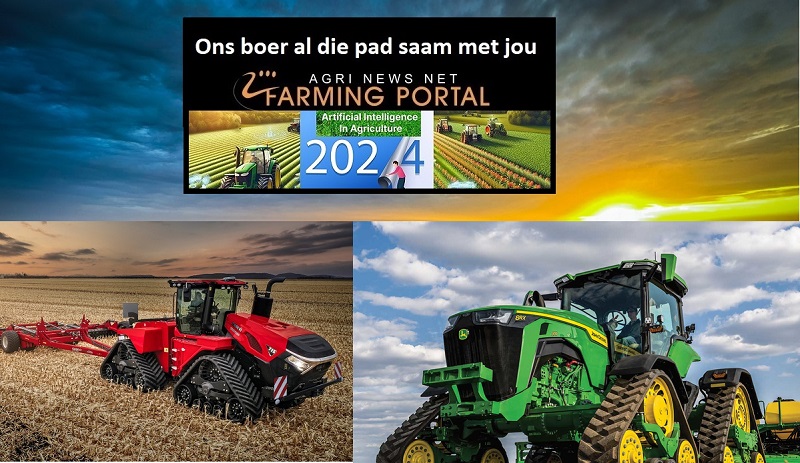This time of the year is particularly busy for South African farmers.
Wine and table grape producers are in full harvest, while stone fruit is also in season. The summer grain planting season had a difficult start, but overall estimated planting looks promising, despite ongoing drought conditions in some regions. Livestock farmers are facing some price pressures and constrained demand. Yet, exports will grow as biosecurity measures improve and market access broadens.
Despite challenges, the agricultural sector is expected to grow by at least 3,5% this year, with more than half of all produce destined for export markets. The renewed efforts to improve infrastructure, particularly ports, rail and roads, encourage further confidence. South African agriculture is on track to maintain its reputation as one of the country’s fastest-growing industries, consistently outpacing national economic growth.
Myths and disinformation fuel unnecessary tension
However, the unexpected signing of the Expropriation Act on 23 January 2025 has sparked political turmoil and unnecessary tension within the agri-food system. This has been exacerbated by disinformation regarding the Act’s intent, impacting negatively on the investment climate for South African agriculture.
To be clear no seizures or confiscations of private property have taken place. Nor has any land been expropriated without compensation. Isolated cases of land grabs and trespassing have been dealt with. Additionally, rumours linking farm murders to the signing of the Act are baseless and irresponsible. Farmers remain productive and committed to their operations.
Organised agriculture’s role in the Expropriation Act
For years, AgriSA has been actively involved in legislative developments impacting the agricultural sector. When amendments to the Expropriation Act No. 63 of 1975 were first proposed in the early 2000s to align it with the 1996 Constitution, AgriSA played a key role in discussions. Before the recent signing of the Bill, we actively participated in NEDLAC and parliamentary processes from 2013 to 2020, including contributing to the 2015 Expropriation Bill, which laid the groundwork for the current legislation.
Most recently, in 2024, we urged President Cyril Ramaphosa to either return the Bill to the National Assembly for reconsideration or consult the Constitutional Court regarding its constitutionality. Our appeal included an independent macro-economic impact assessment by GOPA Group South Africa, which reaffirmed our position that private property rights are essential for capital formation, economic growth and job creation.
AgriSA’s position on the Expropriation Act
From the outset, AgriSA has acknowledged that expropriation in the public interest is a necessary function of any government. Internationally, expropriation in the public interest is an accepted principle, provided it is constitutionally and legally sound and at a price that is fair and reasonable. We take comfort in the fact that the Expropriation Act remains subject to Section 25 of the Constitution, which has not been amended. Importantly, Section 25 requires that compensation be just and equitable, ensuring a fair balance between the public interest and the rights of affected property owners.
Although the signed Act explicitly allows for R nil compensation in certain circumstances, this does not mean expropriation without compensation is inevitable. The principle of just and equitable compensation remains intact, requiring a careful evaluation of all relevant factors. Despite these checks and balances, the agricultural sector’s primary concern is the definition of expropriation itself and the limitations it implies. Accordingly, we will monitor cases on a case-by-case basis, as advised by Senior Counsel, to ensure that private property rights remain protected under the Constitution.
The importance of property rights in agriculture
Land ownership does not guarantee success in agriculture, but it is the foundation for accessing capital. Farmers rely on their land as collateral when applying for loans to finance expansion and production. Between 2019 and 2023, agricultural debt at commercial banks averaged 52% of agricultural GDP, underscoring the critical role of private property in ensuring food security and industry stability. It is also a means to restore the dignity of people.
This is why AgriSA and other agricultural organisations continue to advocate for extending property rights to emerging farmers. It is well documented that the Department of Agriculture, Land Reform, and Rural Development has yet to release 2,5 million hectares of state-owned land acquired through existing land reform programs. Unlocking this land and granting secure title deeds to emerging farmers would greatly enhance their ability to access financing and build sustainable enterprises.
The Expropriation Act vs land reform
The Expropriation Act is often mistakenly equated with land reform legislation, but the two are distinct. The Act does not introduce new expropriation powers, nor does it replace existing land reform policies. The legal framework for land reform, including the Land Reform (Labour Tenants) Act, the Extension of Security of Tenure Act, the Restitution of Land Rights Act, and the Provision of Land and Assistance Act, remains unchanged.
AgriSA has long supported land reform efforts aimed at addressing historical injustices and fostering a more inclusive agricultural sector. However, the primary obstacles to the success of new farmers remain access to skills, financing, and secure land tenure. Even with proper training and land ownership, the cyclical nature of farming presents significant challenges for emerging farmers. Nevertheless, the organised agricultural sector remains committed to development initiatives, with thousands of black farmers receiving ongoing support.
Investment continues despite uncertainty
Between 2018 and 2021, calls for expropriation without compensation (EWC) led to the establishment of the Constitutional Review Committee to assess amendments to Section 25 of the Constitution. The rejection of the Eighteenth Amendment Bill in 2021 was a pivotal moment in reaffirming property rights within South Africa’s democratic framework.
An analysis of the Agbiz Agribusiness Confidence Index shows that, despite heightened tensions during the EWC debate, farmers and agribusinesses continued investing in their operations, ensuring ongoing food security for the nation.
In my recent conversations with farmers, one message has been clear: they remain committed to farming. Despite political uncertainty, they will continue producing food, supporting rural economies, and driving agricultural growth.















